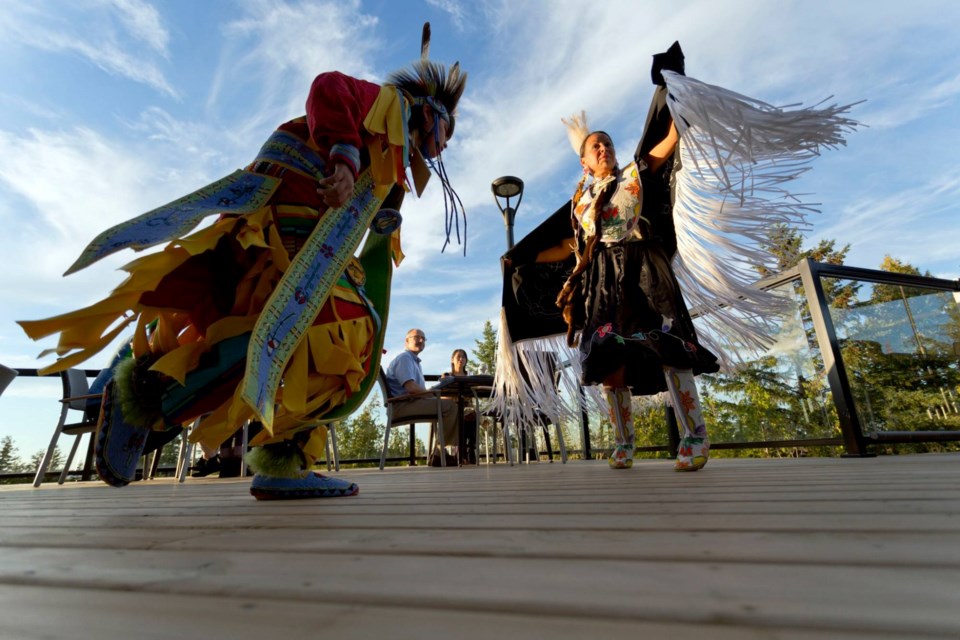Tourism operators wanting to engage in true reconciliation with Indigenous people are going to have to face some hard truths about their efforts and motivations, according to the leader of Indigenous Tourism Ontario (ITO).
Doing the bare minimum to support Indigenous people isn’t enough, said Kevin Eshkawkogan, CEO of the provincial tourism advocacy group.
Reconciliation today is more than just tossing off a quick land acknowledgement or hiring the occasional Indigenous worker.
“Ask yourself: are you really an ally?” Eshkawkogan said during a Sept. 29 webinar hosted by ITO and Destination Northern Ontario. “What are you doing to be an ally?”
The good news, he said, is that Indigenous people are there to support their efforts. It won’t be a perfect process, and mistakes will be made along the way, he said, but “it’s important that we do this and it’s important that we work together in a safe, collaborative manner.”
Eshkawkogan made his comments in observation of Canada’s National Day for Truth and Reconciliation — colloquially known as Orange Shirt Day — which recognizes the legacy of the country’s residential school system.
Among his comments were lessons on how non-Indigenous people can help build a more inclusive tourism industry in which their Indigenous colleagues have equal standing.
First up are land acknowledgements, which are typically delivered in advance of an event or activity in recognition of the traditional lands of the Indigenous communities on which a business operates.
Though it’s a welcome gesture, it’s not the responsibility of Indigenous people to perform them, said Eshkawkogan, a member of the M’Chigeeng First Nation on Manitoulin Island.
“It’s time to evolve; stop asking Indigenous people to do land acknowledgements for you,” he said.
“You have to do the work, you have to put in the time to become educated, you need to honour the truth, you need to expand your knowledge, and you need to have some conversations with some people.”
Instead, he said, operators can ensure Indigenous inclusion by inviting someone from the local First Nation to come in and welcome people to the territory. It’s a more respectful way to engage with their Indigenous neighbours and a meaningful path to relationship-building.
Want more business news from the North? Sign up for our newsletter.
When it comes to doing business with Indigenous people, Eshkawkogan advised operators to vet any business partners in advance of striking partnerships.
On Orange Shirt Day, for example, it’s common for businesses to outfit their staff with orange shirts bearing reconciliation-themed messages. But they need to be mindful of where the profits from the sale of those shirts are going, as some don’t benefit residential school survivors at all, Eshkawkogan asked.
He also encouraged operators to learn the significance of Indigenous-made items they might sell at a gift shop. A drum, for example, is more than just a musical instrument.
The artisan who makes it would engage in harvesting the raw materials, later participating in a ceremony to birth the drum forward. Without that context, it’s just an inanimate object, he said.
“There’s a whole bunch of teaching that needs to happen, versus perpetuating dependency, to make sure that we grow the economy, as we all want to do, but grow as healthy people and help each other out,” he said.
There are examples of organizations that are engaging meaningfully in reconciliation actions, Eshkawkogan said.
Launched in 2021, the Three Fires Collaborative Quest is a collaboration of the Tourism Industry Association of Ontario (TIAO), Indigenous Tourism Ontario (ITO), and the Ontario Tourism Education Corporation (OTEC).
It provides training and mentorship opportunities to guide more Indigenous people into the tourism and hospitality sectors.
Eshkawkogan said Indigenous people are a natural fit for tourism, since they’ve hosted people on their lands for thousands of years, but they have much more to offer than just cultural tourism. This partnership enables that.
“If we want to be true to the idea of reconciliation, we need Indigenous people woven into the fabric of the tourism industry, not just given a token job, or not just pigeonholed to be in the Indigenous tourism or the cultural tourism sector,” Eshkawkogan said.
Recent work done by Science North and Dynamic Earth in Sudbury also gets it right, he said.
The science centres recently announced they would offer Indigenous attendees free admission into either of their facilities. It’s a move Eshkawkogan said would introduce more Indigenous people to what they have to offer and lead to “some true reconciliation.”
In the same vein, Science North recently engaged with the ITO during the development of their new travelling exhibit, Anishinaabewin Maamninendimowin: Pane Gii-bite (Indigenous Ingenuity: Timeless Inventions), which explores the influence of Indigenous knowledge on the present day.
“They put in the time and they did the work,” Eshkawkogan said of the science centre, which is now touring the exhibit in communities across Northern Ontario.
In moving forward, the tourism leader said there are plenty of opportunities for both Indigenous and non-Indigenous peoples. True reconciliation means everyone coming together in learning and sharing, because “there’s lots here for everybody.”
“Let's be more patient, but also let's be more respectful on both sides of that equation,” he said. “When we do that, and we do that through travel and tourism, we're going to achieve some amazing things.”




